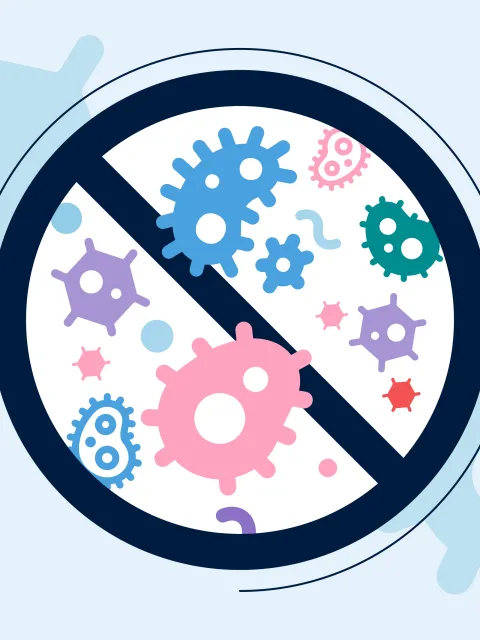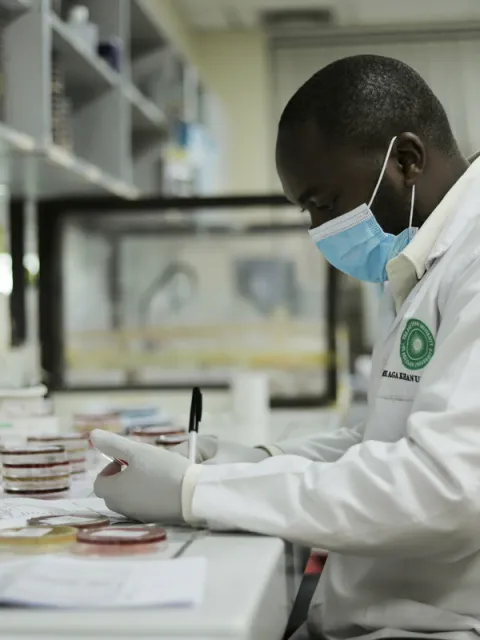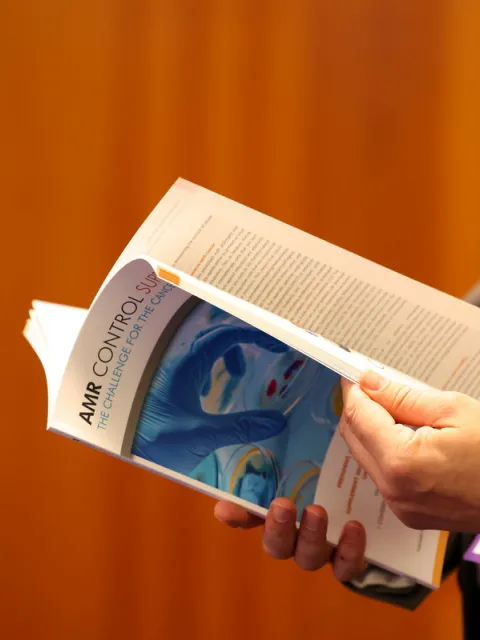AMR and cancer series
In the run-up to the second UN High Level Meeting on Antimicrobial resistance (AMR) taking place in September 2024, UICC is hosting a series of Virtual Dialogues to highlight the threat of AMR for cancer care outcomes and discuss actions the global health and cancer control community can take to address it.

Antimicrobial resistance (AMR) is a public health issue that needs urgent attention at the global, national and health facility levels. Infections become drug-resistant when the pathogens that cause them adapt and change over time, developing the ability to resist the medicines designed to kill them. The result is that many antimicrobial medicines – like antibiotics and antifungals – are becoming less effective at treating illnesses. The overuse of antibiotics in both humans and animals is speeding up this process. Many antimicrobials like antibiotics and antifungals are vital for routine surgery and lifesaving treatments like chemotherapy and radiotherapy.
People with cancer are more susceptible to infections due to the lowering of their immune defences. As many as one in five cancer patients undergoing treatment is hospitalized due to an infection and infections are the second leading cause of death for people living with cancer [see reference here]. The emergence of drug-resistant pathogens are seriously affecting cancer care outcomes and if action is not taken now, all the progress made in cancer care will be undermined.
In this regard, addressing AMR for better cancer care outcomes is a priority for UICC and the UICC-led AMR and cancer care Task Force. The focus areas identified by the task force include the (i) importance of data and surveillance systems, (ii) ensuring access to treatment including R&D for innovative treatments and good infection prevention and control practises and (iii) multistakeholder collaboration between the cancer and infectious diseases communities. This UICC series of virtual dialogues will focus on these areas.
The first High Level Meeting on AMR took place at the UN General Assembly in 2016 and the next one will take place this year (in September 2024). There is an urgent need for key players to come together in keeping the momentum on innovative ways to address AMR, increase collaborative networks and ensure there is commitment from all the relevant actors. The High Level Meeting must result in clear and measurable action with adequate funding and concrete next steps.
Virtual Dialogue: The importance of including AMR strategies in national cancer control plans

Virtual Dialogue - The critical role of data in addressing antimicrobial resistance for better cancer treatment and care

Virtual Dialogue: Addressing AMR for better cancer care - the importance of effective antimicrobial stewardship

Virtual Dialogue: Addressing AMR for better cancer care – the importance of collaboration towards one goal

Virtual Dialogue: Addressing antimicrobial resistance for better cancer care – the important role of R&D

Virtual Dialogue: The crucial role of data in addressing antimicrobial resistance for better cancer care

Special Focus Dialogue - How do we ensure access to the right treatment at the right time to address AMR

Special Focus Dialogue: Antimicrobial resistance (AMR) | UICC

Special Focus Dialogue - Impact of antimicrobial resistance on cancer care outcomes

Special Focus Dialogue - Drugs don't work


Antimicrobial resistance (AMR) or drug resistance, including antibiotic resistance, is a growing public health issue and needs urgent attention in countries around the world. Due to a variety of factors, people with cancer are particularly vulnerable to AMR, which is threatening the progress being made in cancer care.
Antimicrobial resistance and its impact on cancer...

The threat of antimicrobial resistance (AMR) and its impact on cancer treatment is a priority for UICC.
UICC's actions on antimicrobial resistance

This page regroups important resources on antimicrobial resistance, material for UICC's members and partners, infographics, videos and other important documents and links.
Antimicrobial resistance resources
Last update
Thursday 31 July 2025